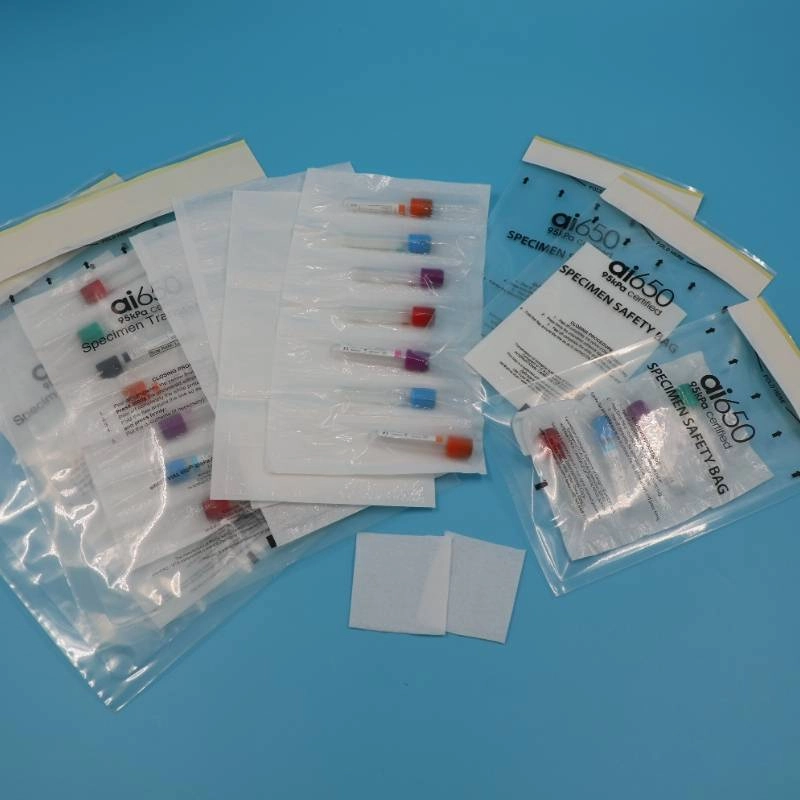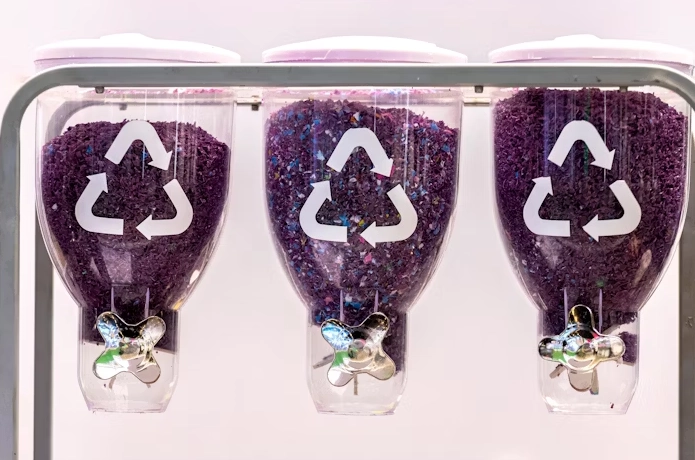Medical Transportation News: Innovations in Specimen Shipping with AI 650 Bags
Release time: 2025-07-08
The medical transportation industry is undergoing a transformative phase, driven by advancements in technology and stringent regulatory requirements. One key area of innovation is the development of specialized packaging solutions, such as the AI 650 95kPa Biohazard Specimen Transportation Bag, which is revolutionizing the safe and compliant transport of medical specimens. This article explores recent trends in medical specimen shipping, focusing on the role of AI 650 specimen bags and their impact on logistics efficiency, safety, and compliance.
The Growing Importance of Medical Specimen Shipping
The safe transportation of biological specimens—such as blood, tissue, urine, and other diagnostic samples—is critical to healthcare and research. With the global medical transport box market projected to grow at a 9.3% CAGR, reaching $1.27 billion by 2029, the demand for reliable, compliant, and innovative packaging solutions is higher than ever. Specimen shipping must adhere to strict international regulations, such as the International Air Transport Association (IATA) Packing Instruction 650 and the U.S. Department of Transportation (DOT) guidelines, to ensure safety for both handlers and the environment.
The rise in clinical trials, diagnostic testing, and organ transportation has amplified the need for packaging that can maintain sample integrity under varying conditions, including extreme temperatures and pressure changes during air transport. This is where products like the AI 650 specimen bag come into play, offering a robust solution for Category B biological substances (UN3373).
AI 650 Specimen Bags: A Game-Changer in Specimen Transport
The AI 650 95kPa Biohazard Specimen Transportation Bag is designed to meet the rigorous demands of medical specimen shipping. These UN-certified, Variation Two shippers are suitable for transporting hazardous liquids or solids in Packing Groups I, II, and III across all modes of transportation, including air, ground, and sea.
Key features of the AI 650 bag include:
- High-Pressure Resistance: The bags are engineered to withstand an internal pressure of at least 95 kPa under conditions ranging from -40°C to +55°C, making them ideal for air transport where cabin pressure changes are common.
- Comprehensive Packaging Kits: AI 650’s 4GV Packaging Kits simplify the shipping process by including absorbent pouches, fiberboard inserts, pads, ties, pressure-sensitive tape, and a 4GV corrugated outer box. These kits accommodate glass or plastic bottles that pass hydrostatic pressure tests per ISTA Procedure 1A.
- Leak-Proof and Tamper-Evident Design: The patented adhesive closure and continuous seal ensure secure containment, preventing leaks and providing tamper evidence for safe handling.
- Versatility: Available in sizes to ship four 8-oz or four 1L containers, these bags cater to a range of specimen types, including blood vials, swabs, and medical devices.
These features make AI 650 bags a preferred choice for laboratories, hospitals, and research institutes needing reliable secondary packaging for clinical diagnostic samples and biological substances.
Integration of AI in Medical Specimen Logistics
While the AI 650 specimen bag itself is a physical innovation, the broader medical transportation sector is leveraging artificial intelligence (AI) to enhance logistics efficiency. AI is transforming supply chain processes by enabling real-time data analysis and dynamic solutions for transport systems. In the context of specimen shipping, AI-driven logistics can optimize routing, track shipments, and ensure compliance with temperature and handling requirements. For instance, platforms like Descartes’ GroundCloud provide end-to-end visibility and safety compliance for final-mile carriers, which is critical for time-sensitive medical specimens.
AI-powered demand forecasting is another emerging tool, helping logistics directors balance inventory and transportation costs while ensuring timely delivery of medical supplies. By predicting demand and optimizing delivery schedules, AI reduces the risk of delays that could compromise specimen integrity. This is particularly important for frozen or refrigerated specimens, which require specialized containers like the AI 650 bags to maintain specific temperature conditions during transit.
Trends Shaping the Medical Transport Box Market
Recent reports highlight several trends reshaping the medical transport box market, which complement the use of AI 650 specimen bags:
- Advanced Thermal Insulation: Manufacturers are focusing on next-generation transport boxes with improved thermal insulation and extended preservation durations to enhance the safety of organ and specimen transport.
- Live Tracking Capabilities: Modern medical transport boxes are increasingly equipped with IoT-enabled tracking systems, allowing real-time monitoring of location and environmental conditions. This aligns with the need for transparency in specimen transportation.
- Sustainability: The introduction of biodegradable options, such as the AI 650 95kPa Biohazard Specimen Bag, reflects a growing emphasis on eco-friendly packaging solutions that comply with regulations while reducing environmental impact.
- Customizable Solutions: Products like the DuraPorter® Specimen Transport Box offer versatile designs with customizable compartments, accommodating various sample types and enhancing usability for laboratories and clinics.
These trends underscore the industry’s shift toward smarter, safer, and more sustainable solutions, with AI 650 specimen bags playing a pivotal role in meeting regulatory and operational demands.
Challenges and Considerations in Specimen Shipping
Despite advancements, challenges remain in medical specimen transportation. Mishandling or improper packaging can lead to sample contamination or degradation, resulting in inaccurate test results and poor patient outcomes. Logistics directors must ensure that couriers are trained in DOT regulations (e.g., 49 CFR 173.6) and use specialized containers designed for ambient, refrigerated, or frozen specimens.
Additionally, the presence of microplastics in medical supplies, such as IV infusion bags, raises concerns about contamination risks during transport. Research indicates that thousands of plastic particles could be introduced into a patient’s bloodstream from a single infusion bag, highlighting the need for high-quality, contaminant-free packaging like the AI 650.


